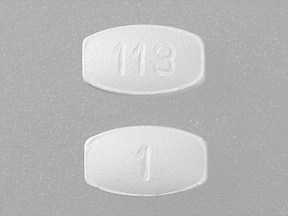Granisetron (injection)
Generic name: granisetron (injection) [ gra-NIS-e-tron ]
Brand name: Sustol
Dosage forms: intravenous solution (0.1 mg/mL; 1 mg/mL), subcutaneous suspension, extended release (10 mg/0.4 mL)
Drug class: 5HT3 receptor antagonists
What is granisetron?
Granisetron blocks the actions of chemicals in the body that can trigger nausea and vomiting.
Granisetron injection is used to prevent nausea and vomiting that may be caused by medicine to treat cancer (chemotherapy), or after having surgery.
Granisetron is sometimes used together with other anti-nausea medications.
Granisetron may also be used for purposes not listed in this medication guide.
Granisetron side effects
Get emergency medical help if you have signs of an allergic reaction: hives; difficult breathing; swelling of your face, lips, tongue, or throat.
Some side effects may occur up to 2 weeks or more after you have received a granisetron injection.
Granisetron may cause serious side effects. Call your doctor at once if you have:
-
pain, swelling, bleeding, skin changes, or a hard lump where the injection was given;
-
severe constipation;
-
headache with chest pain and severe dizziness, fainting, fast or pounding heartbeats;
-
high levels of serotonin in the body--agitation, hallucinations, fever, fast heart rate, overactive reflexes, nausea, vomiting, diarrhea, loss of coordination, fainting.
Common side effects of granisetron may include:
-
headache;
-
stomach pain, constipation;
-
fever; or
-
abnormal liver function tests.
This is not a complete list of side effects and others may occur. Call your doctor for medical advice about side effects. You may report side effects to FDA at 1-800-FDA-1088.
Warnings
Before you are treated with granisetron injection, tell your doctor about all your medical conditions, especially heart problems. Also, make sure your doctor knows about all the medicines you are using.
Before taking this medicine
You should not receive granisetron if you are allergic to it.
To make sure granisetron is safe for you, tell your doctor if you have:
-
kidney disease;
-
a heart rhythm disorder;
-
a personal or family history of long QT syndrome;
-
an electrolyte imbalance (such as low levels of potassium or magnesium in your blood);
-
if you have recently had stomach or intestinal surgery; or
-
if you are allergic to a medicine like granisetron (dolasetron, ondansetron, Aloxi, Anzemet, Lotronex, Zofran, or others).
It is not known whether granisetron will harm an unborn baby. Tell your doctor if you are pregnant.
It is not known whether granisetron passes into breast milk or if it could harm a nursing baby. Tell your doctor if you are breast-feeding a baby.
How is granisetron given?
Granisetron is injected under the skin, or into a vein through an IV.
A healthcare provider will give you this injection.
Granisetron injection is usually given at least 30 minutes before the start of chemotherapy.
When used to prevent nausea and vomiting caused by surgery, you will receive granisetron injection either before or after the procedure.
Your doctor will determine how often to treat you with granisetron, and for how long.
What happens if I miss a dose?
Because you will receive granisetron injection in a clinical setting, you are not likely to miss a dose.
What happens if I overdose?
Since granisetron is given by a healthcare professional in a medical setting, an overdose is unlikely to occur.
What should I avoid while receiving granisetron?
Follow your doctor's instructions about any restrictions on food, beverages, or activity.
What other drugs will affect granisetron?
Granisetron can cause a serious heart problem, especially if you use certain medicines at the same time, including antibiotics, antidepressants, heart rhythm medicine, antipsychotic medicines, and medicines to treat cancer, malaria, HIV or AIDS.
Receiving granisetron while you are using certain other medicines can cause high levels of serotonin to build up in your body, a condition called "serotonin syndrome," which can be fatal. Tell your doctor if you also use:
-
lithium;
-
an antidepressant;
-
migraine headache medicine;
-
a narcotic (opioid) medication or muscle relaxer; or
-
other anti-nausea medications.
This list is not complete. Other drugs may interact with granisetron, including prescription and over-the-counter medicines, vitamins, and herbal products. Not all possible interactions are listed in this medication guide. Tell your doctor about all medicines you use, and those you start or stop using during your treatment with granisetron.
More about granisetron
- Check interactions
- Compare alternatives
- Pricing & coupons
- Reviews (19)
- Drug images
- Side effects
- Dosage information
- During pregnancy
- Drug class: 5HT3 receptor antagonists
- Breastfeeding
Patient resources
- Granisetron drug information
- Granisetron transdermal
- Granisetron (Intravenous) (Advanced Reading)
- Granisetron (Transdermal) (Advanced Reading)
- Granisetron Tablets
- Granisetron Extended-Release Injection
Other brands
Professional resources
Other brands
Related treatment guides
Further information
Remember, keep this and all other medicines out of the reach of children, never share your medicines with others, and use this medication only for the indication prescribed.
Always consult your healthcare provider to ensure the information displayed on this page applies to your personal circumstances.
Copyright 1996-2024 Cerner Multum, Inc. Version: 1.01.

